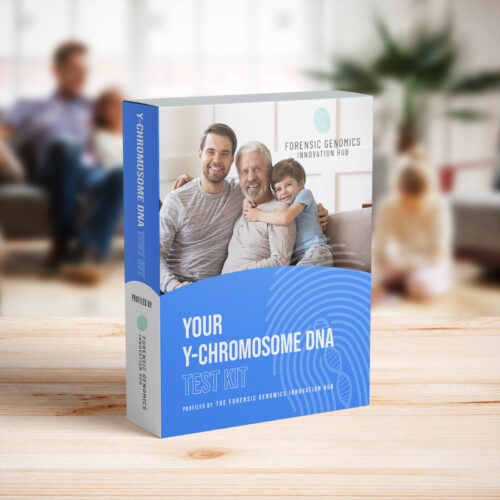With the NHS under such tremendous pressure there has never been a better time to take control of our own healthcare. By empowering ourselves with as much information as possible about our genetic make up, we could assist ourselves and our healthcare practitioners in making decisions that could improve our quality of life.
Pharmacogenomics combines the science of drugs (pharmacology) and the study of genes and their functions (genomics) to develop effective, safe medications and doses that are tailored to variations in our genes. Particular genes in our DNA influence how well a drug works for you, and whether you will experience any side effects.
Identifying variations in these genes that affect how our body will respond to many common medicines will help predict which drug is best suited for us, and at what dose. We can potentially avoid the current approach of “one size fits all” when prescribing drugs for certain conditions. Because our genes hardly change throughout our lifetime a pharmacogenomics test only needs to be done once. By identifying what variants we might have increases the likelihood that we are given the right drug for us, at the right dose, even before treatment begins.
Our genes affect;
A. How we absorb, metabolise, distribute and excrete a drug
B. Drug targets within our bodies such as receptors, enzymes and ion channels (proteins which allow molecules to enter and leave a cell)
How does the test work?
Most pharmacogenomics tests currently focus on the genes that code for the enzymes which commonly impact drug metabolism (Eg. cytochrome P450 enzymes (CYPs)). These enzyme genes vary in the population, resulting in one person being an ultra-rapid metaboliser (able to metabolise a drug at a much greater rate than normal), and another person a poor metaboliser (complete lack of metabolism or lower rate of metabolism than normal).
With 6.5% of all hospital admissions in the UK being due to adverse drug reactions, and 15% of people in hospital having a reaction to a medication prescribed during their stay, there is a firm belief that pharmacogenomics testing must be integrated fully, fairly and swiftly, according to a report published by the Royal College of Physicians and the British Pharmacological Society[1]. It has enormous potential to ensure we all have an equal chance of being prescribed a medicine at a dose that is likely to be safe and effective for us, with minimal side effects. In fact the Netherlands is introducing a pharmacogenomics passport for every citizen to eliminate the cost of adverse side effects and incorrectly prescribed drugs.
What are the benefits?
Pharmacogenomic testing is already benefitting many people who have breast and colon cancer, identifying whether they can safely be prescribed a particular chemotherapy drug 5-fluorouracil. Research has also shown that there are genetic differences in the way people respond to the commonly prescribed painkiller Codeine.
Another routinely prescribed drug that will benefit from pharmacogenomic testing is Clopidogrel, an oral antiplatelet agent which is used to inhibit blood clot formation in coronary artery disease, peripheral vascular disease, and cerebrovascular disease. It helps to prevent heart attacks and strokes in people at high risk and prevent blood clots after certain medical procedures. Taking clopidogrel at right dosage is therefore very important. Clopidogrel will not work properly if you take less of it and taking more than directed may increase the chance of side effects.
The main side effect of clopidogrel is bleeding more easily than normal. This includes nosebleeds, heavier periods (in females), bleeding gums or bruising. Doctors usually prescribe an initial loading dose of up to 300mg or 600mg to acute coronary syndrome patients, followed by maintenance dose of 75mg per day. For prevention of heart attack or stroke in patients with a history of heart attack, stroke, or peripheral arterial disease, a dose of 75mg once a day is normally prescribed. But what if you are NOT a normal metaboliser? The potential impact of the wrong dose is evident.
What is the evidence to support this?
In the past pharmacogenomic testing has been regarded as prohibitively expensive on the NHS, however a recent study, published in BMJ Open on 4 July 2022, calculated that the cost of the 218 adverse drug admissions to hospital over a one month period amounted to £490,716 which, if extrapolated nationally, could cost the NHS in England £2.21bn annually[2]. The Royal College of Physicians and British Pharmaceutical Society recently stated in their joint report “Using pharmacogenomics to improve patient outcomes” (2022) that unwanted side effects from prescription drugs cost the NHS £530 million annually in hospital admissions. The ultimate goal is to make pharmacogenomic based prescribing a reality for all but with the ever increasing pressure on the NHS this will not happen quickly.
The goals of the Association for Molecular Pathology Pharmacogenomics (PGx) Working Group within the Association for Molecular Pathology Clinical Practice Committee are to define the key attributes of PGx genes recommended for clinical testing and a minimum set of variants that should be included in clinical PGx genetic assays [3,4]. They have published recommendations for a minimum panel of gene variants (Tier 1) and an extended panel of variant alleles (Tier 2) that will aid laboratories when deciding on pharmacogenomics tests. These recommendations are not to be interpreted as restrictive but to provide a reference guide.
We are living longer today than ever before. But an ageing population means more of us are likely to live with long-term health conditions that require medication. This means the number of drugs we are taking is increasing as is the cost to the NHS. Whilst many pharmacogenomics tests cannot identify drug-drug interactions or allergies, nor can they tell you the impact that your age, weight, diet, and liver and kidney function will have on how your body metabolises drugs, the genetic information stored in your DNA, is the fundamental basis to ensuring you get the right drug at the right dose.
References:
1. https://www.bps.ac.uk/getmedia/b43a3dca-1bbf-4bff-9379-20bef9349a8c/Personalised-prescribing-full-report.pdf.aspx
2. https://pharmaceutical-journal.com/article/news/rates-of-hospital-admissions-for-adverse-drug-reactions-on-the-rise-research-suggests
3. https://pubmed.ncbi.nlm.nih.gov/31075510/
4. https://pubmed.ncbi.nlm.nih.gov/34118403/
A few more interesting reads;
https://pharmaceutical-journal.com/article/opinion/we-must-start-using-pharmacogenomic-information-to-optimise-medicines-for-older-people
https://pharmaceutical-journal.com/article/news/adverse-drug-reactions-reduced-by-nearly-one-third-after-genetic-testing-major-trial-results-to-show












